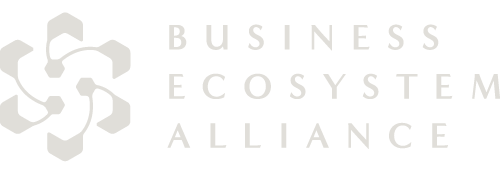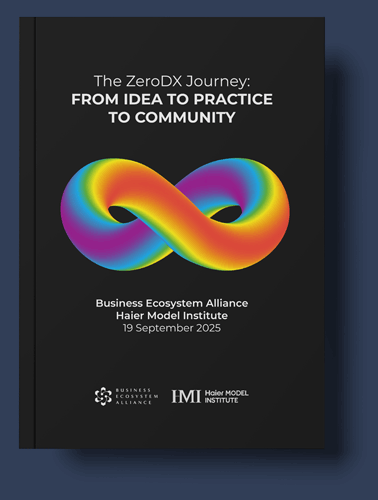

Choosing Renewal: AIT’s Breakthrough as a Family Business
AIT was a winner in the Emergent Excellence category of the 2025 ZeroDX Awards announced in Beijing on 19 September 2025.
AIT was founded over thirty years ago as a family business by Chau Lien Uong and Canh Thang Le. From its origins in Vietnam, the company grew steadily as a trusted partner in design and manufacturing for the advertising industry, creating signs, shop displays, gifts, and publications for major clients across sectors. Over time, it became a go-to partner for automotive giants such as Toyota, Lexus, Honda, VinFast and BYD, as well as banks like MB and HSBC, technology leaders such as FujiFilm and Asus, and even national icons like Vietnam Airlines.
For many years, the company operated in a classic hierarchical style. Departments were neatly divided, instructions flowed downward, and employees focused on their piece of the puzzle without seeing the whole. By the late 2010s, however, the cracks showed. Bottlenecks slowed delivery, silos bred delays, and creativity was stifled by rigid approvals. Leadership understood the issue was not talent, but the system. Unless they unlocked the full potential of their people, AIT risked losing its edge in a market that demanded speed and originality.
In 2020, with more than 100 employees, AIT chose renewal. The company partnered with Teal Unicorn to adopt its Open Management system, which resonated strongly with the principles of RenDanHeYi. AIT reframed its mission to become an organisation where people were self-managing, purposeful, and highly skilled. The goal was not only to deliver projects quickly and beautifully but to build a structure where every person could see and shape the value they created. Transparency of information, distributed authority, and shared accountability became central to the strategy.
Market opportunities amplified this need. Automotive, motorbike, retail, and event communication sectors required partners who could respond with creativity and precision at speed. Clients such as Toyota and Honda wanted co-creation rather than order-taking. This expectation pulled AIT closer to customers, embodying the principle of zero distance where user needs directly guide employee action.
The leadership team itself reflected the cultural change. CEO and founder Chau Lien Uong, who had guided the company for three decades, worked alongside Deputy Director of Production Anh Cuong Le, Deputy Director of Marketing Thanh Thuy Le, Creative Director My Linh Le Chau, and Project Manager Duc Anh Le. Together they modelled a shift from command to facilitation, removing obstacles and equipping teams to decide for themselves.
Departments gave way to multi-skilled teams capable of managing entire projects end-to-end. Daily stand-ups became the rhythm of coordination, solving blockers instantly rather than waiting for approvals. Shared Kanban boards ensured that priorities and progress were transparent, enabling trust and alignment across functions. Employees received training in project management, collaboration, and decision-making, strengthening their ability to act as entrepreneurs inside the company.
Suppliers and media agencies were drawn into this transformation too. Instead of operating on the margins, they became partners in delivery, involved in transparent planning cycles and sharing responsibility for final outcomes. This broader ecosystem approach reflected the RenDanHeYi vision of networks that create value together.
At the heart of the shift was daily practice. Each new project began with a dedicated team, its goals clearly defined and its decision-making power acknowledged. Leaders stepped in only when obstacles arose. Rather than hold lengthy meetings to assign blame, AIT designed short sessions where teams shared lessons, proposed solutions, and immediately applied them. The focus moved from problems of the past to improvements for the future.
The outcomes confirmed the choice. By 2023, project delivery times had shortened, errors had declined, and quality improved. Employees grew more engaged and proactive, taking ownership and driving improvements beyond their formal roles. Clients responded with trust, awarding AIT new contracts and expanded responsibilities. Most importantly, business results were shared openly with employees, reinforcing the principle that when the company prospers, everyone benefits.
AIT’s journey shows how a family business with three decades of history can reinvent itself for the future. It has embedded empowerment, zero distance with users, transparency of data, distributed leadership, partnership networks, daily action cycles, and shared rewards into its culture. What began as a necessity to survive has become a commitment to a way of working that unleashes the potential of every person and strengthens the ecosystem around them.
Originally created by Corporate Rebels


